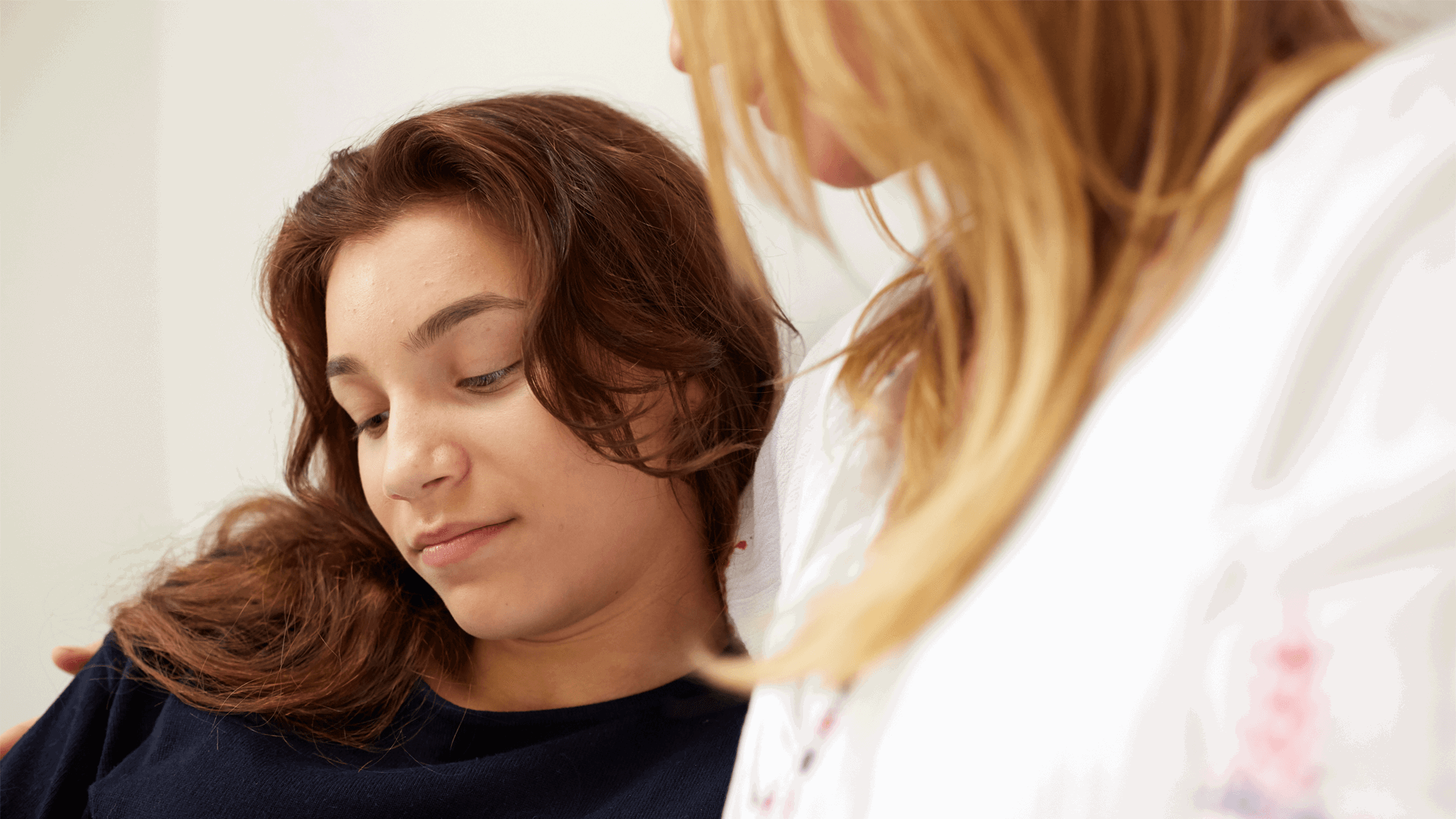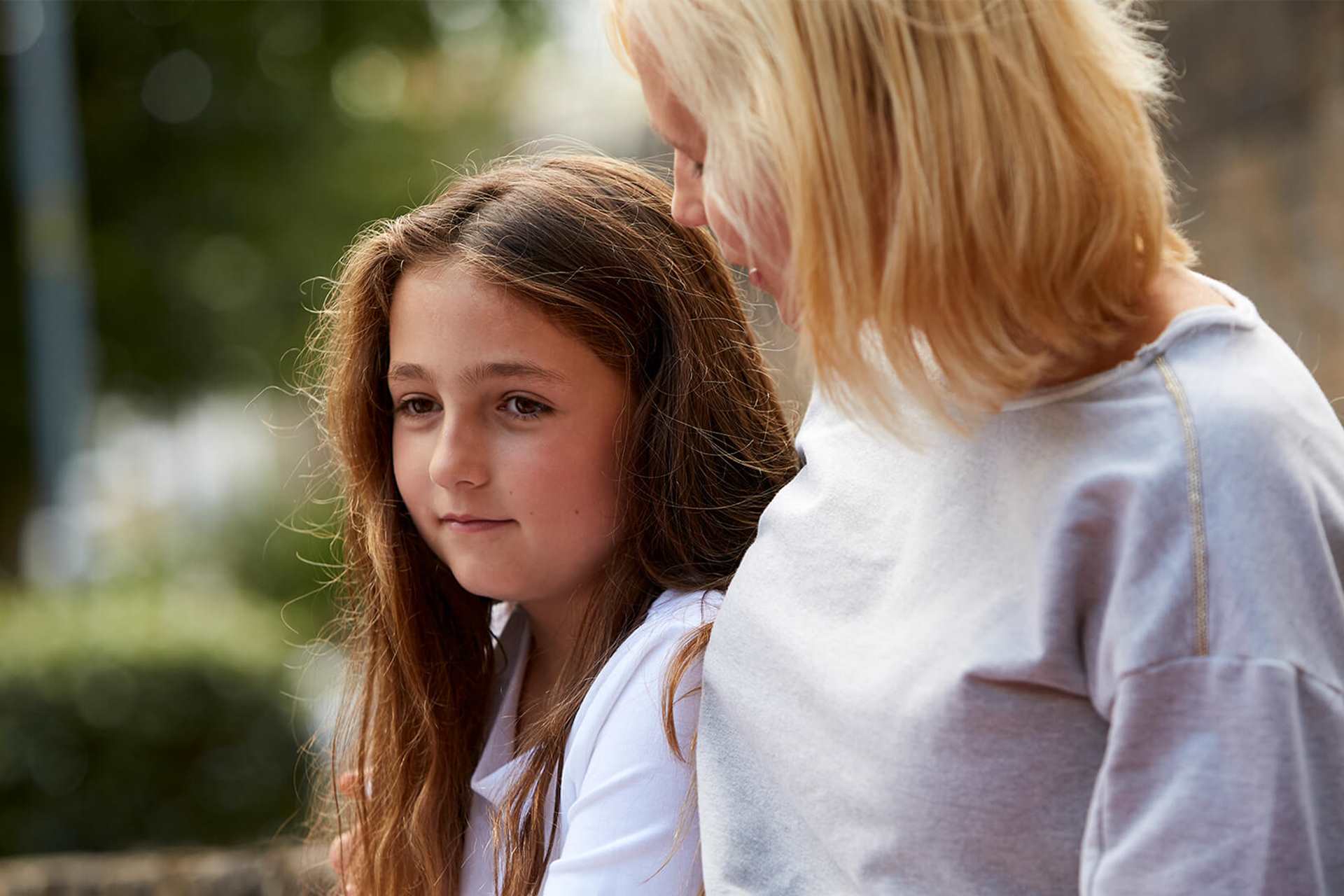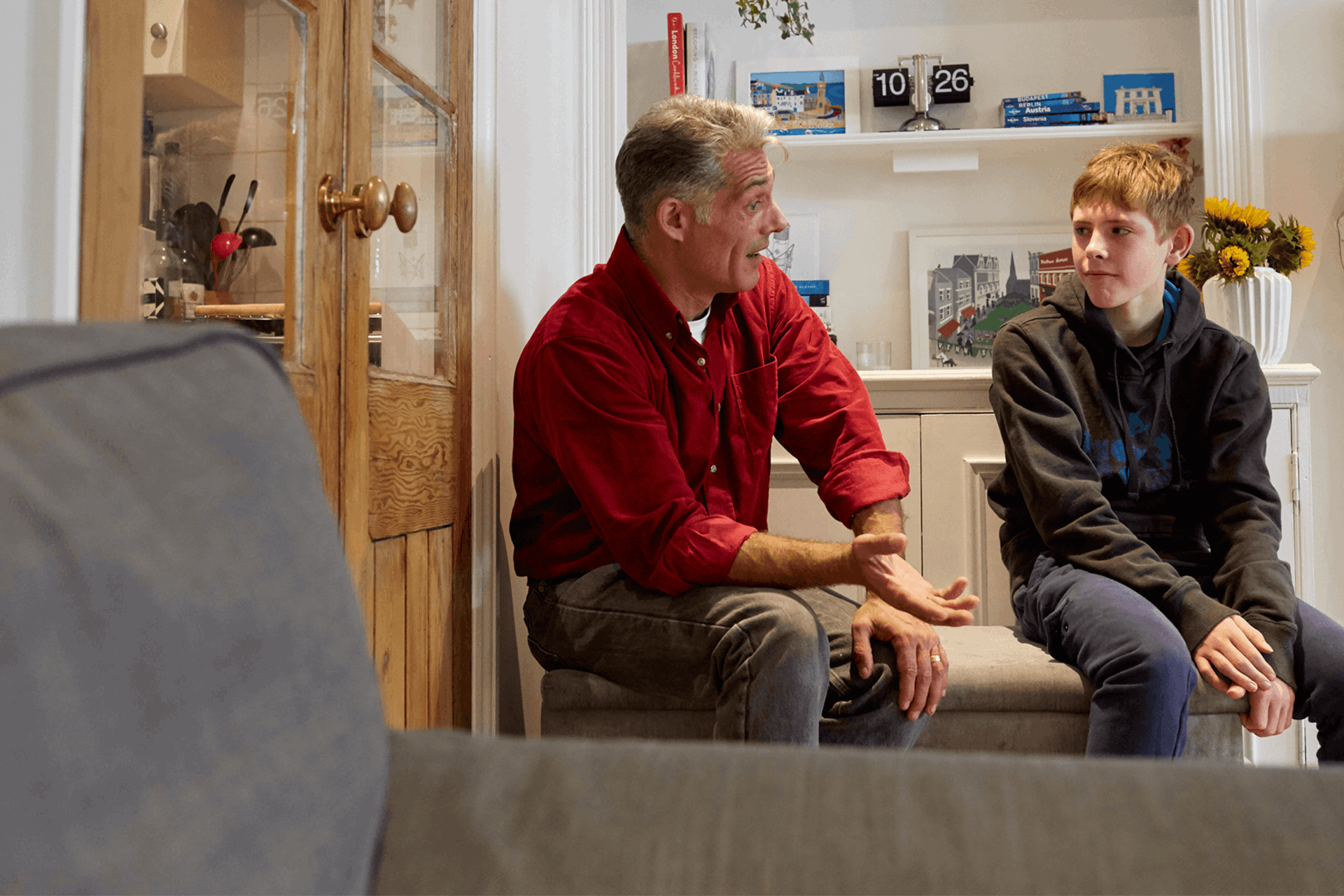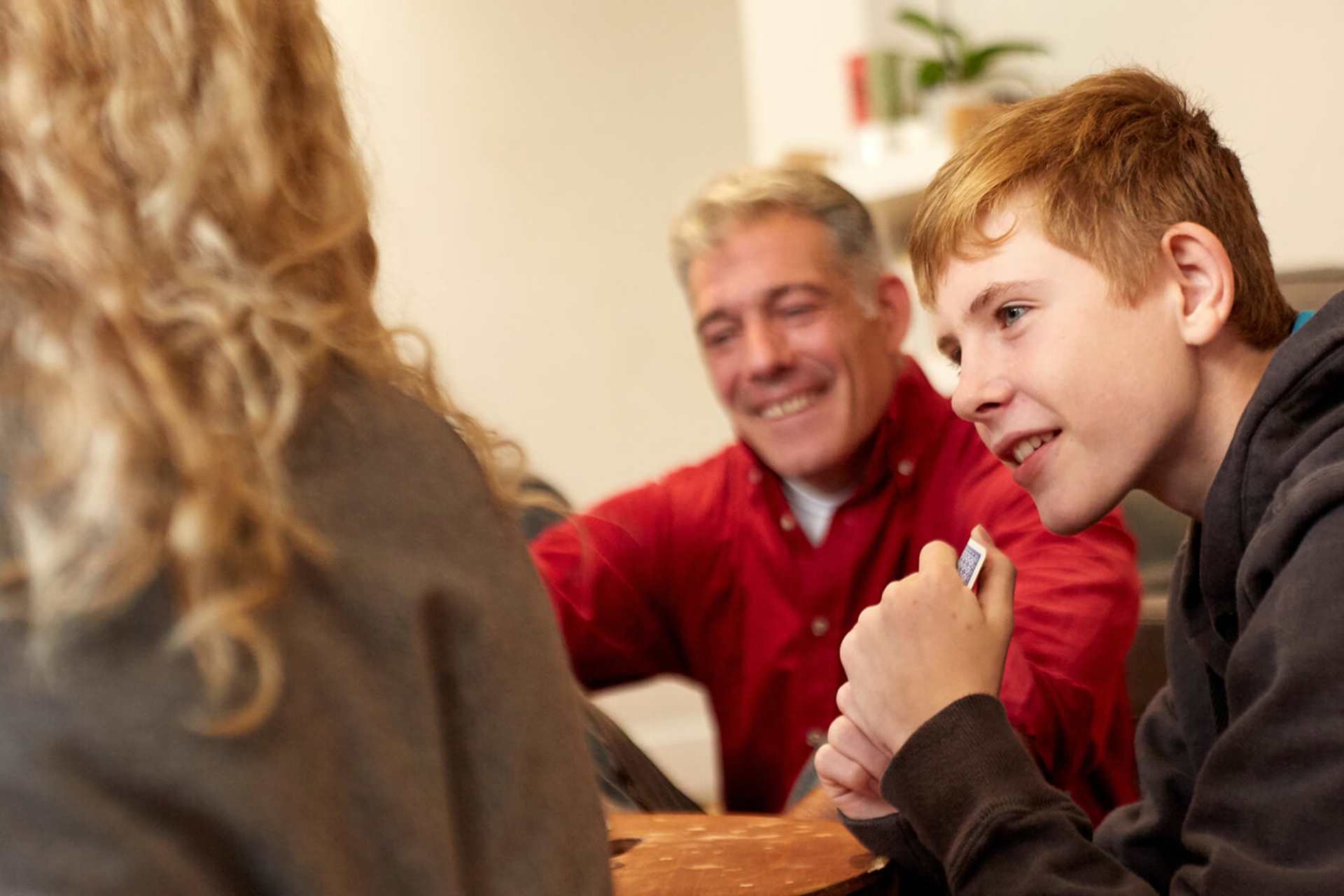Topics mentioned: school anxiety and refusal
About: Sarah* shares what happened when her daughter Emily* began to struggle with school anxiety, and gives her advice for others in the same situation.
*Names have been changed.
Primary school was easy. Emily was outgoing, sociable, loved her drama classes. Secondary started well: new friends, good grades. She seemed positive.
Then, in Year 8, things went wrong. First came the odd detention; then repeated warnings in class, frequent calls home, meetings about behaviour.
We stumbled on until the pandemic sent school online. At home, Emily became withdrawn. She saw less of friends. Reluctantly, she returned to school for Year 9, but things fell apart in weeks. One morning she simply said she couldn’t put her uniform on or go in. I knew nothing about school ‘refusal’. I naively thought young people just got up and went unless they were physically ill.
I knew nothing about school ‘refusal’. I naively thought young people just got up and went unless they were physically ill.
Attempts to cajole or force (yes, I bundled her into the car one day) led to panic attacks and uncommunicative days under the duvet. As term progressed, so did the anxiety. The result was six months of depression, self-harm - and no more school that academic year.
It was deeply distressing; for Emily mainly, but also for me. Witnessing your child’s mental health decline rapidly is terrifying. It was also very isolating. Even the most empathetic friends and family cannot understand without direct experience.
Where are we now?
Emily, now in Year 10, is in school most days. She works on her anxiety with a fantastic mentor and spends breaks in a quiet room. She has regular CAMHS appointments and is waiting for an autism assessment. Things aren’t easy, but they are so much better.
The turning point was hospital admission after a particularly serious self-harm incident. A psychiatrist assessed Emily (she had previously refused to engage with CAMHS) and prescribed sertraline for anxiety and depression. There was real improvement, quickly. It was an indescribable relief.
After a few weeks, Emily said she felt like going back to school. She was still anxious, as well as nervous about missed work and what people would be saying, and there were some failed attempts. Then her mentor offered a home visit. They chatted and then she suggested Emily put her uniform on for a walk “just to the school gates”. She managed an hour in school for the next three days. That would have seemed inconceivable previously. The home visit from school was the link we needed.
The home visit from school was the link we needed.
What I have learnt about 'school refusal'
I entered this 'school refusal' journey blindly, but I have learnt so much. Knowing this could have helped me (and therefore Emily).
Don’t try and force your child into school. However stressed you feel, try to be calm and show you’re on their side. Allow a day off for the sake of their mental health if they’re struggling.
Maintain proactive, regular contact with the relevant people in school. Ask what they can do to help. Schools and individuals vary hugely on how supportive they are, so find someone helpful. Make it clear you are doing everything you can to work with them.
Contact CAMHS early. Mental health professionals can advocate for your child with the school, but waits can be long, so don’t delay.
It’s often difficult for your child to articulate the problem. They may be in a heightened state of stress and not know why or feel able to explain.
Your child probably wants to feel able to be in school, just as much as you want them to be there. In many cases it just doesn’t feel possible.
Don’t punish or stop your child seeing friends. They can be instrumental in helping your child feel connected to school and less isolated.
However stressed you feel, try to be calm and show you’re on their side.
You aren’t alone and it’s not your fault. It’s so much more common than you might think. Try and find others in similar situations, online (for instance Not Fine in School) and/ or in person. The advice, hope and sense of community are so helpful.
There may be an underlying issue. Undiagnosed neurodevelopmental conditions such as ADHD or autism are common, particularly among girls. Consider this if there’s no obvious reason for what’s happening and talk to the GP or CAMHS.
Be honest with your employer. The situation may impact your work or your own mental health. Many workplaces are supportive, particularly since the pandemic. I was surprised and grateful.
Rely on a few trusted and non-judgemental friends or family. They can listen, support and be there on the tough days. Learn to not worry about what others might think.
The situation may impact your work or your own mental health. Many workplaces are supportive, particularly since the pandemic. I was surprised and grateful.
There are still days when Emily can’t go in, but letting go of the idea that education has to be a linear progression helps. It’s not easy, but I try not to worry about the future too much. I’ve learnt that mental health takes priority over education (the latter just doesn’t work otherwise anyway). School remains a daily battle for Emily, and I am so proud of what she has achieved.
More information and advice
Where to get help
-
Independent Provider of Special Education Advice (IPSEA)
Provides legally based advice and support to help families get the right education for children and young people with special educational needs and disabilities (SEND).
Alongside calling their Helpline, you can also book an appointment with their Advice Line or Tribunal Helpline.
- Opening times:
- Tuesday - Thursday, 9.30am - 2.30pm
Spread the word





